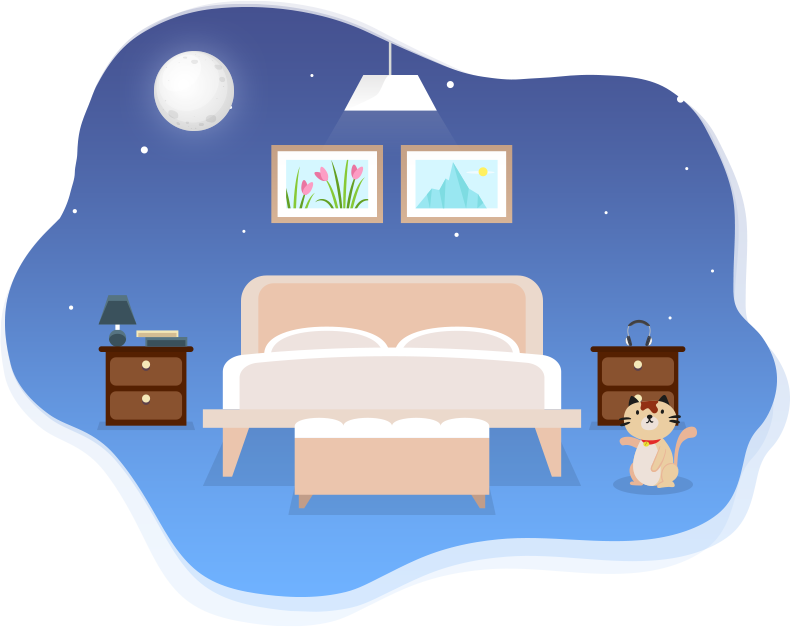How Sleep Can Boost Practice Productivity and Profitability
By Practice Growth May 24, 2021
It seems only too obvious, right? A little added sleep and you will not only feel better, feel more alert, but also enjoy new levels of productivity. This can in turn lead to increased profitability from your work efforts. But the question behind this is why? Why will sleep, out of all things that we could possibly try, be the answer in helping us boost productivity and profitability?
 We’ve all been there; we’ve all pulled those all-nighters to meet a deadline or fine-tune our work. And sometimes, we’ve pulled it off. However, the majority of the time, working with little to no sleep can only result in errors and mistakes being made that could easily be avoided. Foggy eyes and foggy minds won’t allow you to see the specifics of your work, and it will rarely result in optimal cognitive and work-related performance. The truth of it is, a lack of sleep is not good for your body. In fact, sleep deprivation has been the catalyst for traffic accidents, poor work performance, lowered immunity, and poor health.
We’ve all been there; we’ve all pulled those all-nighters to meet a deadline or fine-tune our work. And sometimes, we’ve pulled it off. However, the majority of the time, working with little to no sleep can only result in errors and mistakes being made that could easily be avoided. Foggy eyes and foggy minds won’t allow you to see the specifics of your work, and it will rarely result in optimal cognitive and work-related performance. The truth of it is, a lack of sleep is not good for your body. In fact, sleep deprivation has been the catalyst for traffic accidents, poor work performance, lowered immunity, and poor health.
Focus
Grabbing a good night’s sleep, with a decent number of hours, can help you to perform any task that you face throughout your day, to a higher standard. This is because clinical studies [1] have shown that high-quality sleep will help you to be less distracted, helping you to concentrate on your specific task. Just like batteries, if we reach the point of being burnt out, and run out of energy, our bodies simply can’t efficiently or effectively carry out the function we want them to. It may be tempting, to work through the night, believing that those hours spent laying in bed, are wasted productive hours. However, simply put, the result of this is that your brain is not functioning to its fullest capacity. Your tasks will take longer, your thoughts will be muddled, and you might even feel stress and anxiety more strongly than you would if you had a good night’s sleep.
Well-being
 We are often at our most productive, when our mental, emotional and physical wellbeing are at their peak. And we won’t reach peak states if we’re running on little sleep and sapped energy. A commonplace side-effect of being sleep deprived, is irritability, stress, even rage. Your communication with your colleagues and your peers may suffer, and in turn, this may contribute to a strained work environment and poor teamwork. Seeing as teamwork has been ranked as one of the strongest ways to optimize productivity, it doesn’t take an industrial psychologist to see how being tired and cranky in a work environment can negatively impact your productivity, and thus your profitability.
We are often at our most productive, when our mental, emotional and physical wellbeing are at their peak. And we won’t reach peak states if we’re running on little sleep and sapped energy. A commonplace side-effect of being sleep deprived, is irritability, stress, even rage. Your communication with your colleagues and your peers may suffer, and in turn, this may contribute to a strained work environment and poor teamwork. Seeing as teamwork has been ranked as one of the strongest ways to optimize productivity, it doesn’t take an industrial psychologist to see how being tired and cranky in a work environment can negatively impact your productivity, and thus your profitability.
Judgment
Unfortunately, after a night of less than quality sleep, your decision-making skills will be impaired. Quality sleep is an important factor that helps one critically think over a situation and come to a decision swiftly and efficiently. A lack of sleep, while making decisions, could lead you to overlook factors that ought to be considered, and consequently, if left out can lead to a less than desirable outcome. In fact, it’s such a major factor when critically assessing a situation, that making a decision while sleep-deprived can be akin to making a decision while impaired by alcohol [2]. Not the mindset you were quite looking for, is it?
How to get better sleep
If you are struggling to sleep, then perhaps it is time to seek medical advice to ascertain why. If you have been neglecting to prioritize your sleep, we have compiled a list of ways in which you can start ensuring you are reaching a good standard of sleep and creating good sleep habits:
Routine: Choose a time of night that sounds appropriate to you and try to stick to it. Allow your internal body clock to get used to that time of night being your wind-down and sleep time. At first, it may be tricky to let your body fully shut down at this time of night, but stick to it. Forcing yourself into a routine might be the primary way of ensuring a good night’s sleep.
 Quality Matters: Ensure your sleeping space is special to you. Is it comfortable? Perhaps invest in some new duvets, a new mattress, a new pillow that will allow you maximum comfort at night. This will help to prevent tossing and turning throughout the night and allow you to sink into a deep and wonderful sleep.
Quality Matters: Ensure your sleeping space is special to you. Is it comfortable? Perhaps invest in some new duvets, a new mattress, a new pillow that will allow you maximum comfort at night. This will help to prevent tossing and turning throughout the night and allow you to sink into a deep and wonderful sleep.
Light Exposure: According to Nathaniel Watson, director of the Harborview sleep clinic in Seattle, early AM light exposure helps regulate the secretion of melatonin, the sleep-inducing hormone the body releases at night. Light suppresses melatonin secretion, which wakes the body up. Take an early morning walk. Conversely, unless you are afraid of the dark, try to ensure that you are sleeping in darkness. Even small amounts of light at night can disrupt sleep. If it is summer and the sun is rising early, blackout curtains can be a fantastic way to minimize the light entering your room before you are ready to rise.
Limit Screen-time: It should be a general rule of thumb, that as nighttime approaches and your time to hit the hay nears, you should limit or completely eliminate screen time. That means using your phone, PC, or watching TV. It’s hard, but this practice alone will pay dividends. At least, tap into your optical resources and score some really nice frames with blue and green blocking lenses. This can help the brain and mind to wind down becoming ready to sleep. For computer or mobile browsing, use a free, blue light filter app on your smartphone or download flux on your desktop.
Noise: Some people are naturally light sleepers and can wake up to any slight sound. For example, if your heating and cooling system rattles you awake, try using earplugs or white noise to eliminate noises out of your control. Check out amazon for some nifty Sleep Mask Headphones. You can download some binaural beats. Whatever it takes, we’ve got to get our sleep back on track for the sake of our health and performance.
Don’t eat before bed: Your body has been working overtime during the day, keeping up with all of your busy tasks and schedules. Let it relax too, that includes your digestive system. Try to avoid eating anything for at least a couple of hours before you aim to go to bed. This is super hard, especially if you have kids. Fight that urge to numb out or associate late-night television with food. Drink a decaf tea or sparkling mineral water to fight any hunger pangs. Put a sign on the fridge to remind you not to eat. Go to bed earlier. Adopting this one habit will have huge benefits for your sleep and overall health.
Ultimately, sleep will not only help you to feel better emotionally and physically, but it will also help with your productivity and thus your profitability. This is because the more productive you are, the more results you will achieve from your work efforts. Don’t be lulled into a false sense of security, believing that you are actually being more productive by working through those hours you’d normally spend in bed. Make sure you are only applying the best version of yourself to your work. And give your body a rest, it deserves it.
[1] https://www.ncbi.nlm.nih.gov/pmc/articles/PMC5707986/
[2] https://www.wellandgood.com/sleep-deprivation-affects-brain-the-same-as-alcohol-study/